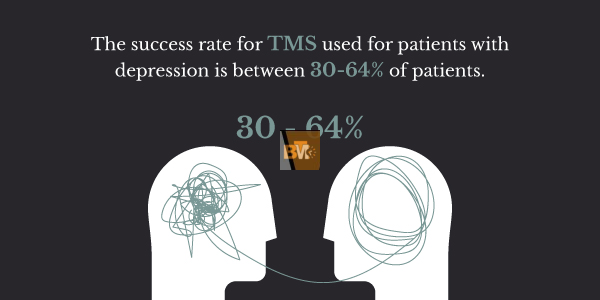Transcranial Magnetic Stimulation (TMS) has gained popularity as a non-invasive treatment for mental health issues like depression and anxiety. But not every TMS story ends happily. In this article, we will dive into how TMS can impact someone’s life in unexpected ways, exploring its potential dangers and offering advice for those who feel TMS has done more harm than good.
What Is TMS and How Does It Work?
Transcranial Magnetic Stimulation, commonly known as TMS, is a therapy that uses magnetic pulses to stimulate nerve cells in the brain. It’s often used to treat depression, especially in people who haven’t found relief from traditional treatments like medication and therapy. TMS involves placing a magnetic coil on the scalp to target specific parts of the brain linked to mood control. The magnetic pulses are supposed to “reset” brain activity, which may improve mood and reduce symptoms of depression.
TMS sessions usually last around 30 to 40 minutes, and patients might need multiple sessions over a few weeks to see results. The treatment is often praised for being non-invasive and not involving medications. However, despite its potential benefits, some patients have reported unexpected and negative outcomes from TMS therapy.
How TMS Negatively Affected My Life
While many people experience positive results with TMS, others are not so lucky. Unfortunately, I fall into the latter category. When I first heard about TMS, I was hopeful. I had tried various medications and therapies without much success, so TMS seemed like a promising solution. But instead of feeling better, my experience with TMS left me feeling worse.
After starting TMS, I experienced intense headaches, dizziness, and a sense of confusion that I couldn’t shake. My anxiety worsened, and instead of relieving my depression, it seemed to deepen it. I started to feel detached from reality, struggling to focus on simple tasks. It felt like my brain was constantly foggy, and my mood swings became more severe. I went from being hopeful about a treatment to feeling like it had ruined my life.
The Hidden Dangers of TMS Therapy
Although TMS is advertised as a safe and effective treatment, there are risks that are not always fully explained to patients. Here are some of the hidden dangers associated with TMS therapy:

Basics of Transcranial Magnetic Stimulation
TMS is generally considered safe, but that doesn’t mean it’s risk-free. The magnetic pulses can cause side effects like headaches, dizziness, and scalp discomfort. For some people, these side effects are mild, but for others, they can be debilitating.
Common Uses of TMS in Therapy
Doctors often recommend TMS for people who have not responded well to antidepressants or other treatments. It is used to treat depression, obsessive-compulsive disorder (OCD), and even anxiety. However, not everyone responds to TMS in the same way, and the results can vary widely.
Why People Choose TMS for Mental Health
Many people turn to TMS after feeling let down by other treatments. It’s non-invasive, does not require medication, and is relatively quick. But as more people try TMS, more stories are coming to light about its potentially negative side effects.
Real-Life Stories: TMS Gone Wrong
There are countless stories from people who had high hopes for TMS but were left feeling worse. One individual shared how TMS sessions caused them to feel dizzy and confused, resulting in panic attacks that they had never experienced before. Another patient reported feeling emotionally numb after TMS, unable to feel joy or sadness. Instead of helping, TMS left them feeling more disconnected from their lives.
Coping with Unexpected TMS Outcomes
If you find yourself struggling with the aftereffects of TMS, it’s essential to remember that you are not alone. Many people have experienced unexpected outcomes, and there are steps you can take to cope:
- Acknowledge Your Feelings: It’s okay to feel angry, disappointed, or frustrated if TMS did not work for you.
- Seek Medical Advice: Talk to your doctor about the symptoms you’re experiencing. They might suggest adjusting your treatment plan.
- Lean on Loved Ones: Share your feelings with family and friends. Support from those who care about you can make a big difference.
- Join Support Groups: Connecting with others who have experienced similar issues with TMS can provide comfort and guidance.
Finding Support When TMS Fails
When TMS leaves you feeling worse, it can be difficult to know where to turn. Here are some options to consider:

Why TMS Might Not Work for Everyone
Not everyone’s brain reacts the same way to TMS. Factors like brain chemistry, past trauma, and even lifestyle can affect how well TMS works. Some people might find relief, while others, like me, might feel worse.
What to Do If TMS Made Things Worse
If TMS has negatively impacted your mental health, it’s crucial to seek help immediately. Talk to a healthcare professional about alternative treatments. Sometimes, medications, therapy, or even lifestyle changes can help reverse the damage caused by TMS.
How to Seek Help After a Bad TMS Experience
If you feel that TMS has ruined your life, it’s important to find the right support. Consider speaking to a therapist who understands the risks of TMS or reach out to support groups where others share similar experiences. Your mental health matters and there are people who want to help you heal.
Why People Choose TMS for Mental Health
Despite the risks, people still turn to TMS because it offers hope for those who feel like they’ve exhausted all other options. The promise of a non-invasive treatment that can reset brain activity is appealing. However, it’s crucial for anyone considering TMS to understand both the potential benefits and risks before making a decision.
The Bottom Line
TMS may work wonders for some people, but it’s not a miracle cure for everyone. The reality is that TMS can have unexpected side effects that leave some patients feeling worse than before. If you are considering TMS, make sure you have a clear understanding of both its potential benefits and drawbacks. For those who have had negative experiences, know that you are not alone, and there are resources available to help you recover.







Leave a Reply